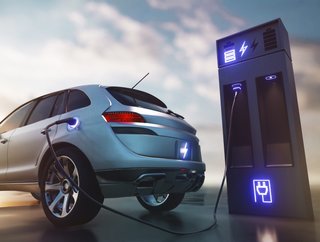Honda and Nissan Partner to Harness AI and Upscale EVs

Both Honda and Nissan will be considering areas of potential collaboration, as evidenced by their signing of a memorandum of understanding this week.
Despite previously being pitted against each other as rivals, both companies are considering a strategic partnership to collaborate on producing key components for electric vehicles (EVs) and artificial intelligence (AI) in automotive software platforms.
With the EV market having slowed in recent months, on account of lessening demand. The partnership could lead to them producing upscaled EVs, during a time where the Japanese market is facing competition from the Chinese market, including Tesla, Xpeng and others.
Combining resources to upscale within the EV market
The EV market boomed throughout 2023, with EY research confirming that sales doubled from 2021 and jumped 55% in 2022, therefore accounting for 13% of all vehicle sales. Likewise, the People’s Republic of China continues to dominate the global market, having reached 27% of total EVs sold.
Both Japanese manufacturers, Honda and Nissan will collaborate to harness technology for the development of EVs. This collaboration will include components and software, with both hoping to remain some of the largest car manufacturers in Japan.
Combined, the companies sell more than four million cars globally. The partnership is not exclusive to Japan, with each stating that there are opportunities for collaboration across all of their locations around the world.
Combining resources in this way will also enable both companies to cut costs and enact greater digital transformations during the age of AI.
These more traditional manufacturers have been struggling in recent months to compete with more technologically advanced competitors as the EV sector has grown. As a result, these companies have faced large development costs, with Honda and Nissan arguing that a partnership will enable greater cost-effectiveness and greater levels of production.
According to Reuters, Honda in particular aims to increase its EV and fuel cell vehicles to 100% across all sales by 2040. The company has already partnered with Mitsubishi on hydrogen fuel cell technology, as reported on our sister publication Data Centre Magazine.
“We are strapped for time and need to be speedy,” President and CEO of Honda, Toshihiro Mibe says. “In 2030 to be in a good position we need a decision now.”
“The rise of emerging players is becoming faster and stronger. Companies that cannot respond to the changes will be wiped out.”
Other leading organisations are also struggling to combat the dominant figures in the EV industry. For instance, it has been reported that tech giant Apple has cancelled its long-running EV project to focus on its AI projects.
******
Make sure you check out the latest edition of Technology Magazine and also sign up to our global conference series - Tech & AI LIVE 2024
******
Technology Magazine is a BizClik brand
- Top 100 Women 2024: Robyn Denholm, Tesla - No. 8AI & Machine Learning
- Top 100 Women 2024: Safra Catz, Oracle - No. 7Digital Transformation
- Advancing AI in Retail with Pick N Pay's Leon Van NiekerkAI & Machine Learning
- OpenText’s Muhi Majzoub: Engineering Platform Growth with AIEnterprise IT






